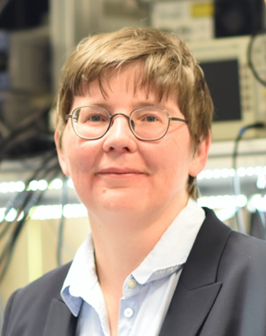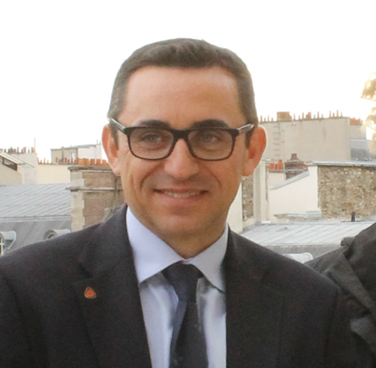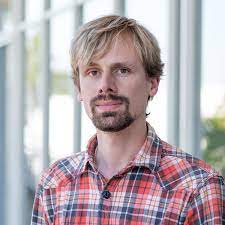IEEE Photonics Benelux Chapter
Annual Symposium 2023
23rd-24th November 2023, Ghent University, Belgium
Notice: it is no longer possible to register for this event! There will also not be any on-site registration possible.
Welcome to the website of the 27th annual Symposium of the IEEE Photonics Benelux Chapter, which is being held at Ghent Universit in Belgium. As in previous editions, we have an exciting and interesting scientific program consisting of invited speakers who will present the topic of photonics from a different application, research, and entrepreneurial perspective. Moreover, we have two poster sessions and ample opportunity for interaction and networking. On behalf of the organizing committee, I am glad to welcome you to the symposium in this abbey!
Geert Morthier
The symposium is honoured to introduce the following invited speakers:
Dr Nathalie Picque
Max Planck Institute, Garching, Germany
Biography:
Nathalie Picqué is a research group leader at the Max-Planck Institute of Quantum Optics (Garching, Germany). She was previously a tenured research scientist with the Centre National de la Recherche Scientifique (CNRS) at Orsay (France). She received her doctoral degree in Physics from Université Paris-Saclay (France) in 1998. Her research interests are in the areas of optics and molecular physics, more particularly in interferometry, precision spectroscopy and laser technology. Her research focuses on exploring new ideas that involve laser frequency combs and on applying these novel concepts to metrology, molecular spectroscopy, holography and chip-scale sensing. A 2019 Optica fellow, Nathalie Picqué has received several awards, including the 2007 Bronze Medal of the CNRS, the 2013 Coblentz award in Molecular Spectroscopy, the 2021 Gentner-Kastler Prize in Physics, a 2021 European Research Council Advanced Grant, the 2022 Helmholtz Prize in Metrology and the 2022 Breakthrough in Physical Sciences of the Falling-Walls Foundation. Further details at http://www.frequency-comb.eu.
Title of the talk: “Optical frequency combs for sensing”
Abstract:
Not yet availableProf. Frederic Grillot
Telecom Paris and Univ. New Mexico, France
Biography:
Frédéric Grillot is currently a Full Professor at Télécom Paris (France) and a Research Professor at the University of New-Mexico (USA). His research interests include, but are not limited to, advanced quantum confined devices using III-V compound semiconductors, quantum dots quantum dashes, light-emitters based on intersubband transitions, non-classical light, nonlinear dynamics and optical chaos in semiconductor lasers systems as well as microwave and silicon photonics applications.
Professor Grillot strongly contributes to promote and support the development of the general optics community. He has served diligently and successfully Optica in particular as an Associate Editor of Optics Express, now as a Deputy Editor since September 2022. As of now, he has published more than 130 journal articles, 3 book chapters, and delivered many invited talks in major international conferences and workshops. Frédéric Grillot is also a Fellow Member of the SPIE as well as a Senior Member of Optica and the IEEE Photonics Society. In 2022, he received the IEEE Photonics Society Distinguished Lecturer Award which honors excellent speakers who have made technical, industrial or entrepreneurial contributions to the field of photonics.
Title of the talk: “Semiconductor quantum dots: why are they so quantum? Genesis, prospects and challenges”
Semiconductor nanostructures with low dimensionality like quantum dots are one the best attractive solutions for achieving high performance photonic devices. In particular, quantum dots are currently experiencing a second revolution, in particular thanks to their very high potential for silicon photonics & quantum technologies. When one or more spatial dimensions of the nanocrystal approach the de Broglie wavelength, nanoscale size effects create a spatial quantization of carriers along with various other phenomena based on quantum mechanics. Thanks to their compactness, great thermal stability and large reflection immunity, semiconductor quantum dot lasers are very promising candidates for low energy consumption and isolation free photonic integrated circuits. When directly grown on silicon, they even show a four-wave mixing efficiency much superior compared to the conventional quantum well devices. This remarkable result paves the way for achieving high-efficiency frequency comb generation from a photonic chip. Quantum dot lasers also exhibit a strong potential for applications in optical routing and optical atomic clock. Last but not least, a quantum dot single photon source is a building block in secure communications, and therefore can be applied to quantum information processing for applications such as quantum computers. The talk will review the recent findings and prospects on nanostructure based light emitters made with quantum-dot technology. Many applications ranging from silicon-based integrated solutions to quantum information systems will be presented. In addition, the lecture will strongly highlight the importance of nanotechnologies on industry and society especially for shaping the future information and communication society.
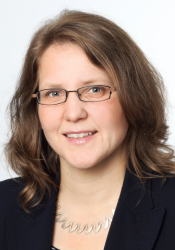
Prof Christine Silberhorn
Dept. of Physics, University of Paderborn, Germany
Biography:
Christine Silberhorn is full professor at Paderborn University and spokesperson of the Institute for Photonic Quantum Systems (PhoQS). She is best known for her work on the development of novel integrated-optical quantum devices and optical systems that lay the foundations for future quantum computers, in quantum communication and quantum metrology. She completed her PhD in 2002 at the University of Erlangen and worked as post-doctoral researcher at the University of Oxford for two years. In 2005, she became Max Planck Research Group Leader in Erlangen, until 2010. Her research has been awarded by several prizes, most prominently she received the Gottfried Wilhelm Leibniz-prize in 2011, and in 2017 she was awarded with a European Research Council Consolidator Grant. She is Fellow of Optica and of the Max Planck School of Photonics (MPSP).
Title of the talk: “Integrated optics and pulsed light for quantum networks”
Abstract:
Quantum technologies promise a change of paradigm for many fields of application, for example in communication systems, in high-performance computing and simulation of quantum systems, as well as in sensor technology. They can shift the boundaries of today’s systems and devices beyond classical limits and seemingly fundamental limitations. Current efforts in quantum photonics target the implementation of practical and scalable systems. Here the realization of controlled quantum network structures and multi-dimensional systems is key for many applications.
Here we review the progress for three differing approaches to overcome current limitations for the implementation of multi-dimensional photonic systems: non-linear integrated quantum optics, pulsed temporal modes and time-multiplexing.
Dr. Thomas Van Vaerenbergh,
iHewlett Packard Enterprise, Belgium
Biography:
Thomas Van Vaerenbergh received the master's degree in applied physics and the Ph.D. degree in photonics from Ghent University, Ghent, Belgium, in 2010 and 2014, respectively. He was awarded the scientific prize Alcatel-Lucent Bell/FWO for his PhD thesis on all-optical spiking neurons in silicon photonics. In 2014, he joined the Large-Scale Integrated Photonics Lab in Hewlett Packard Labs, part of Hewlett Packard Enterprise (HPE), in Palo Alto, California. Since 2019, he is based in HPE Belgium and uses his large network of academic and industrial partners to expand HPE’s research activities related to photonics and AI in the EMEA region (including as HPE’s research lead for the Horizon Europe project NEUROPULS, where CEA LETI is also a research partner). His main research interests include analog photonic and electronic accelerators for combinatorial optimization and AI workloads, and inverse design of photonic devices and circuits based on physics-informed machine learning.
Title of the talk: “Tales from a researcher's pilgrimage - The challenging road towards an Optical Computing Advantage”
Abstract
Not yet available
IEEE Photonics Benelux Annual Symposium 2023
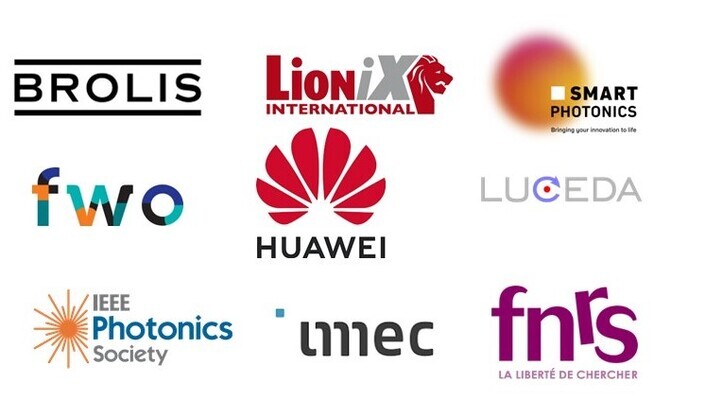 Registration website for IEEE Photonics Benelux Annual Symposium 2023
Registration website for IEEE Photonics Benelux Annual Symposium 2023IEEE Photonics Benelux Annual Symposium 2023geert.morthier@ugent.be
IEEE Photonics Benelux Annual Symposium 2023geert.morthier@ugent.behttps://www.aanmelder.nl/ieee-ps-benelux-2023
2023-11-23
2023-11-24
OfflineEventAttendanceMode
EventScheduled
IEEE Photonics Benelux Annual Symposium 2023IEEE Photonics Benelux Annual Symposium 20230.00EUROnlineOnly2019-01-01T00:00:00Z
Oude Abdij DrongenOude Abdij DrongenDrongenplein 27 9031 Gent Belgium

